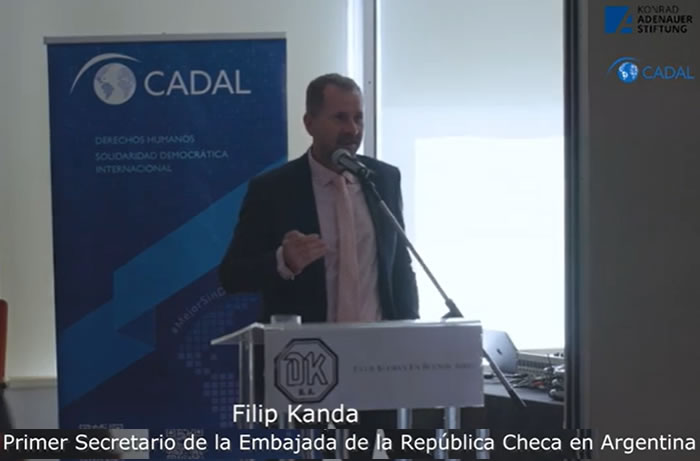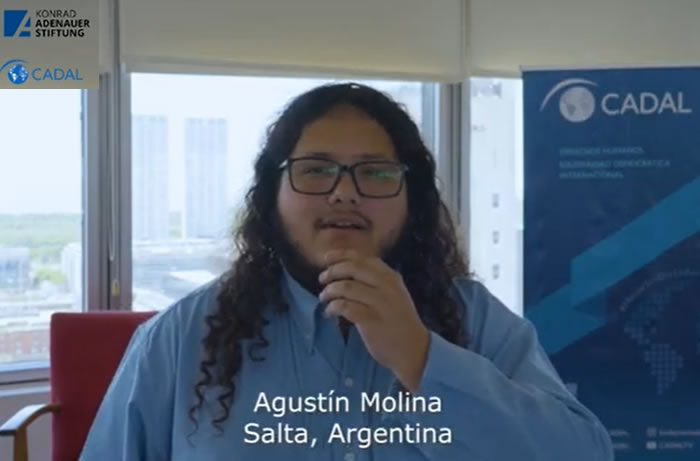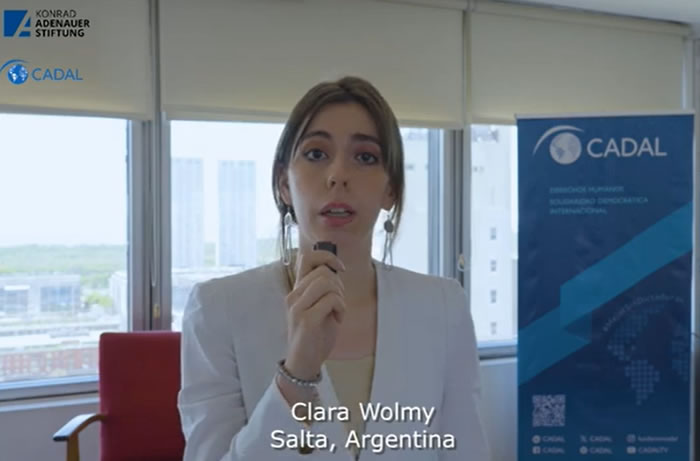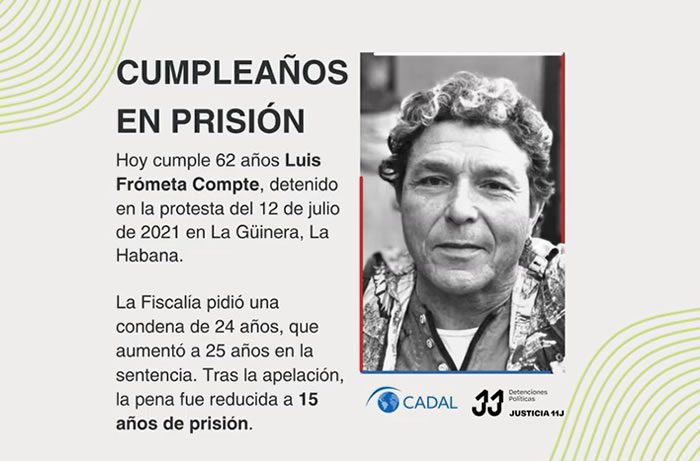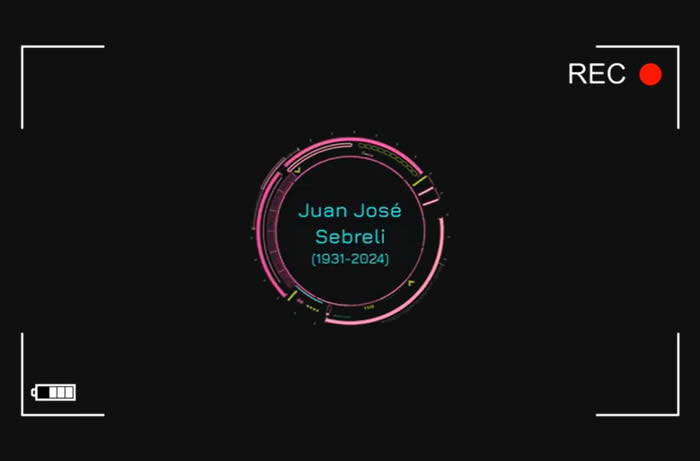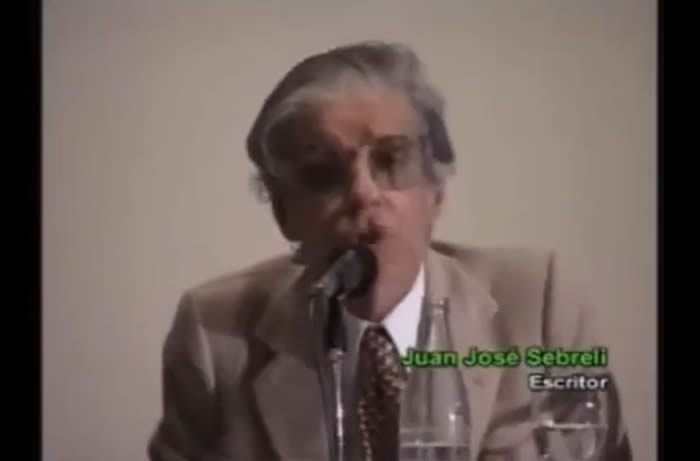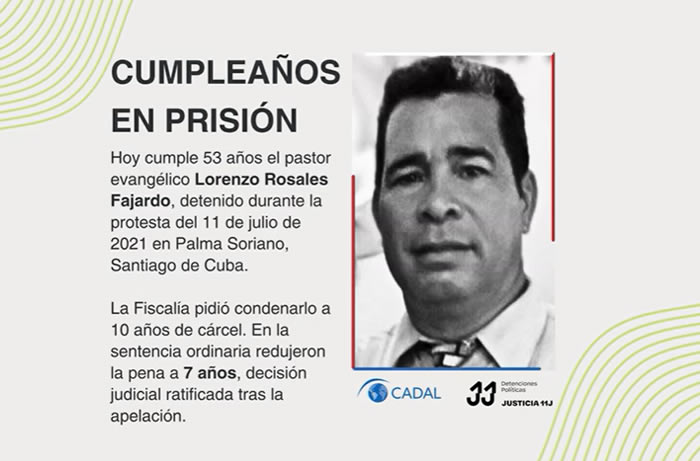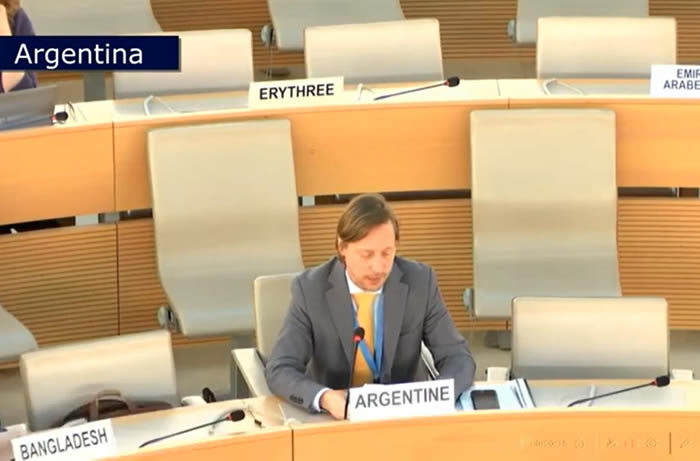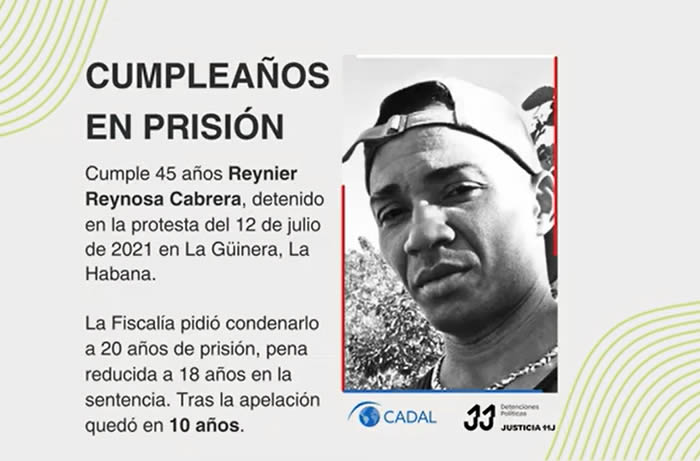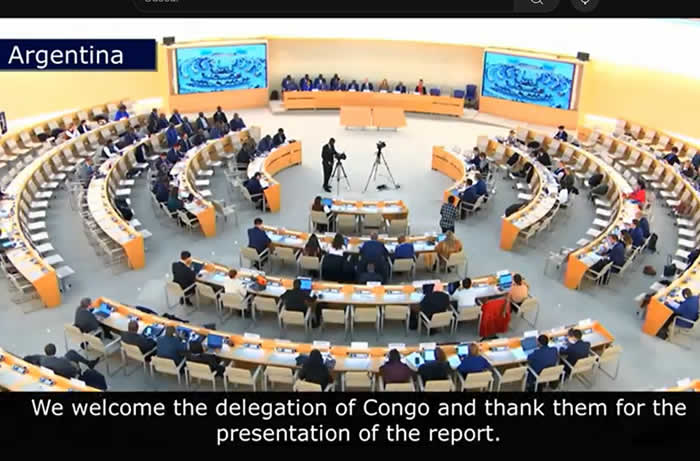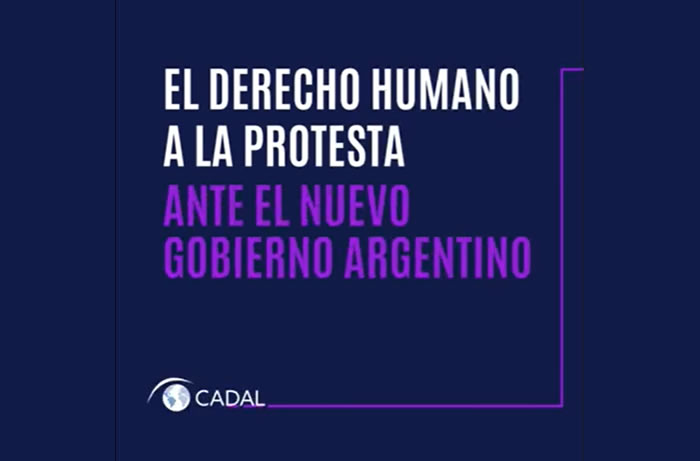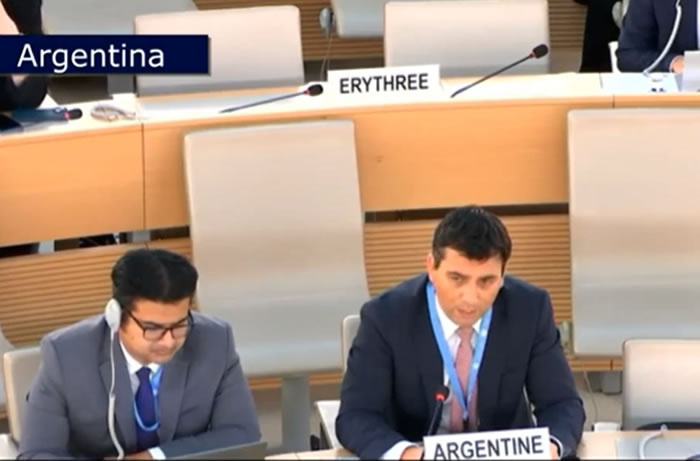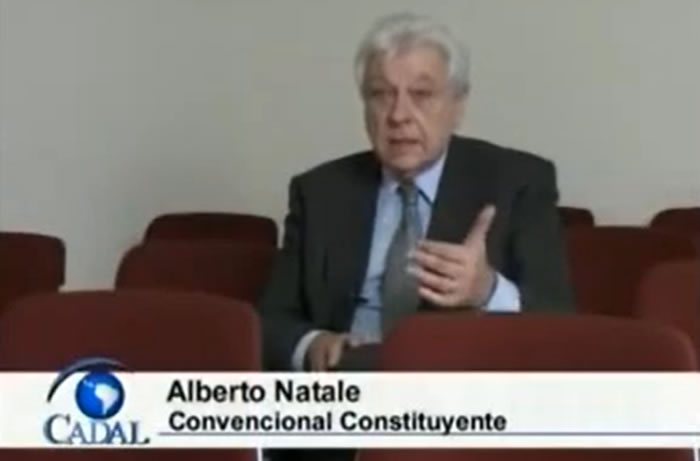Prensa
PRO-CUBAN DISSIDENT CONFERENCE
Fuente: Buenos Aires Herald (Argentina)
Cuban dissidents this week received wide publicity in Buenos Aires at events and incidents which drew attention to the critics of Fidel Castro who have formed the first acknowledged peaceful opposition movement in the island.
The main event in Buenos Aires was held at a hotel on Juncal, where four Argentine intellectuals (seen in the photo) braved a small street demo and a few noisy critics to publicize their demands for the release of dissidents imprisoned in the island, and to tell government that Argentina should show support for Castr's critics.
The four Argentines, three (Marcos Aguinis, Juan Jos‚ Sebreli and Mar¡a S enz Quesada) well known writers and the fourth, university teacher Fernando Ruiz, were responsible among others in January for a statement in La Nación demanding that Argentina's embassy in Cuba show sympathy with critics of the regime, as do European diplomats.
The conference at the Argenta Tower hotel was organized by the Centre for Latin American Development (CADAL), long associated with anti-Castro action, and the German-based Konrad Adenauer Foundation, in Buenos Aires.
Hans Blomeier, the Adenauer Foundation representative in Argentina, opened the conference. He later told the Herald, "With this conference we are demanding that Cubans in Cuba may be allowed to do what Argentines are doing here: express rival views within a democracy." He said the Adenauer Foundation "has as its aim to create spaces from which democracy can be strengthened."
Blomeier's reference to rivals was to a small, noisy pro Cuba demo outside the hotel, some of whose members entered the conference and heckled the speakers. Outside the hotel, on Juncal, they waved flags and pasted handscrawled protest notes on the street walls.
Unrelated to the anti Castro event, the demonstrators outside saw former economy minister Juan Alemann, 82, arrive at the offices of the weekly Argentinisches Tageblatt (owned by the Alemann family). Juan Alemann then became the unexpected target of their anger. He was pelted with eggs and pushed to the ground.
Blomeier said there were over one hundred participants at the conference, who heard, "A deep, but calm analysis of human rights and the need for freedom of the press in Cuba. The conference also heard very moving messages from dissidents and relatives in Cuba, who spoke by telephone to the audience. These were strong personal statements made with great conviction."
While the conference about civil liberties and press freedom was general, the specific topic was Cuban dissident Oswaldo Pay Sardi¤as, who in May 2002, led a small group of Cubans in the launch of a peaceful campaign for democracy in the island. Pay Sardi¤as, founder of the Christian Liberation Movement and the author of the "Proyecto Varela" on basic freedoms, is considered the initiator of a formal opposition group in Cuba which received the support of former US president Jimmy Carter.
The week also coincided with the first anniversary of Fidel Castro's crackdown on dissidents, launched in 2003 as the invasion of Iraq began. The New York-based Committee to Protect Journalists (CPJ) launched an international campaign to draw attention to Manuel V zquez Portal, formerly of Cuba Press and founder of a small independent news agency, and also secondary school teacher, who was sentenced to 18 years in prison. In total, 29 journalists were sent to prison in April last year for terms ranging between 14 and 27 years, for advocating peaceful opposition.
The Cuban government has already published its own version of the trials, arguing that the dissidents are subversive. Luis B ez Mart¡nez, Castro's favourite journalist, and Rosa Miriam Elizalde, published a book titled Los Disidentes: agentes de la seguridad cubana revelan la historia real (Dissidents: Cuban agents reveal the real story), a tract intended to justify the sentences.
Buenos Aires Herald (Argentina)
Cuban dissidents this week received wide publicity in Buenos Aires at events and incidents which drew attention to the critics of Fidel Castro who have formed the first acknowledged peaceful opposition movement in the island.
The main event in Buenos Aires was held at a hotel on Juncal, where four Argentine intellectuals (seen in the photo) braved a small street demo and a few noisy critics to publicize their demands for the release of dissidents imprisoned in the island, and to tell government that Argentina should show support for Castr's critics.
The four Argentines, three (Marcos Aguinis, Juan Jos‚ Sebreli and Mar¡a S enz Quesada) well known writers and the fourth, university teacher Fernando Ruiz, were responsible among others in January for a statement in La Nación demanding that Argentina's embassy in Cuba show sympathy with critics of the regime, as do European diplomats.
The conference at the Argenta Tower hotel was organized by the Centre for Latin American Development (CADAL), long associated with anti-Castro action, and the German-based Konrad Adenauer Foundation, in Buenos Aires.
Hans Blomeier, the Adenauer Foundation representative in Argentina, opened the conference. He later told the Herald, "With this conference we are demanding that Cubans in Cuba may be allowed to do what Argentines are doing here: express rival views within a democracy." He said the Adenauer Foundation "has as its aim to create spaces from which democracy can be strengthened."
Blomeier's reference to rivals was to a small, noisy pro Cuba demo outside the hotel, some of whose members entered the conference and heckled the speakers. Outside the hotel, on Juncal, they waved flags and pasted handscrawled protest notes on the street walls.
Unrelated to the anti Castro event, the demonstrators outside saw former economy minister Juan Alemann, 82, arrive at the offices of the weekly Argentinisches Tageblatt (owned by the Alemann family). Juan Alemann then became the unexpected target of their anger. He was pelted with eggs and pushed to the ground.
Blomeier said there were over one hundred participants at the conference, who heard, "A deep, but calm analysis of human rights and the need for freedom of the press in Cuba. The conference also heard very moving messages from dissidents and relatives in Cuba, who spoke by telephone to the audience. These were strong personal statements made with great conviction."
While the conference about civil liberties and press freedom was general, the specific topic was Cuban dissident Oswaldo Pay Sardi¤as, who in May 2002, led a small group of Cubans in the launch of a peaceful campaign for democracy in the island. Pay Sardi¤as, founder of the Christian Liberation Movement and the author of the "Proyecto Varela" on basic freedoms, is considered the initiator of a formal opposition group in Cuba which received the support of former US president Jimmy Carter.
The week also coincided with the first anniversary of Fidel Castro's crackdown on dissidents, launched in 2003 as the invasion of Iraq began. The New York-based Committee to Protect Journalists (CPJ) launched an international campaign to draw attention to Manuel V zquez Portal, formerly of Cuba Press and founder of a small independent news agency, and also secondary school teacher, who was sentenced to 18 years in prison. In total, 29 journalists were sent to prison in April last year for terms ranging between 14 and 27 years, for advocating peaceful opposition.
The Cuban government has already published its own version of the trials, arguing that the dissidents are subversive. Luis B ez Mart¡nez, Castro's favourite journalist, and Rosa Miriam Elizalde, published a book titled Los Disidentes: agentes de la seguridad cubana revelan la historia real (Dissidents: Cuban agents reveal the real story), a tract intended to justify the sentences.



